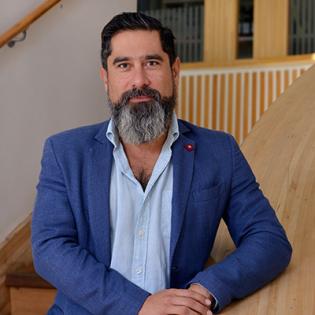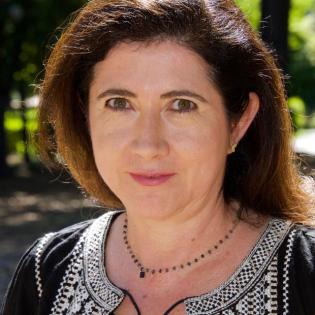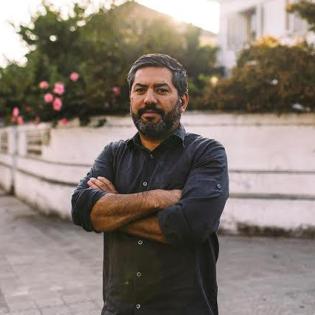Tinker Visiting Professors
Beginning in 1969, the Tinker Foundation endowed Tinker Visiting Professorships (TVPs) at five major universities in the United States – the first Latin American-centric endowed positions at U.S. universities. The program is designed to bring preeminent Latin American scholars, professionals, and regional experts to the United States to encourage interaction and collaboration. Notably, the program seeks to promote exchange in a broad range of scholarly and generalist communities; Tinker Visiting Professors need not focus their work on Latin America per se. The professorship is intended to have the dual impact of enhancing the careers of appointed individuals as well as generating distinctive and meaningful experiences for students and faculty alike.
The mission of the Tinker Foundation is to promote the development of an equitable, sustainable, and productive society in Latin America. Tinker realizes its mission by providing funding to organizations working to address the region’s most pressing challenges.
The Foundation makes grants in the following program areas: Democratic Governance, Education, and Sustainable Resource Management.


Cristóbal Bellolio - Autumn 2024
Cristóbal Bellolio Badiola is a prominent scholar in normative political theory, focusing on the liberal tradition and its intersections with science, religion, and populism. His work has been featured in academic journals including Politics, Law & Philosophy, Res Publica, Social Epistemology, Religions, Philosophy of Education, and Educational Philosophy & Theory.
In 2018, he became the first Iberoamerican to win the Postgraduate Essay Prize from Res Publica and The Association for Social and Political Philosophy for his paper "Science as Public Reason. A Restatement." In 2020, Professor Bellolio was awarded a three-year national grant in Chile to study "The Place of Science in Liberal Democracy.” He has twice been selected to attend the Religious Diversity and the Secular University Summer School at the University of Cambridge for outstanding early career scholars.
His current research focuses on climate change and its relationship with liberal democracy.
He teached The Era of Democratic Pessimism.

Aurora Gómez Galvarriato - Autumn 2024
Aurora Gómez Galvarriato Freer holds a Ph.D. in History from Harvard University. She served for several years as a Research Professor in the Economics Division at the Centro de Investigación y Docencia Económicas A.C. (CIDE) and was the General Director of the Archivo General de la Nación from 2009 to 2013. She has also been a Visiting Professor at the David Rockefeller Center for Latin American Studies at Harvard University and a professor at ITAM. She is a Level II member of the National System of Researchers in Mexico.
Her expertise lies in the economic and social history of Mexico. Within this field, her main research areas have been the process of industrialization in Mexico and Latin America, business and labor history, the economic and social impact of the Mexican Revolution, and the evolution of living standards in Mexico.
She teached The Economic History of Latin America.

Luciana Luz - Winter 2025
Dr. Luciana Luz is an Associate Professor in the Department of Demography at the Universidade Federal de Minas Gerais in Brazil, with a Ph.D. in Demography from Arizona State University. As a prominent demographer, Dr. Luz focuses on broad population issues, including fertility and mortality in Latin America and Mozambique. She is recognized for her methodological contributions, particularly in linking death registry data to sample surveys. Dr. Luz is also noted for her work on education and inequality and has published extensively in top journals using new data sources from countries like Guatemala, Chile, Brazil, and Mozambique.
Her recent research explores gender, time allocation, and labor market outcomes for women, as well as income inequality and family structure in Guatemala. Her studies also address gender inequalities in Colombia, fertility behavior in Brazil and Mozambique, and the educational gradient on adult mortality in Chile. Additionally, she examines how health and early childhood conditions impact children's educational outcomes in Brazil.
Beyond academia, Dr. Luz collaborates with the United Nations, providing support for data quality assessments and demographic training in Latin America and Africa. She has worked with several public sector entities and NGOs, including the Brazilian Ministries of Health and Education, Fundação Itaú Social, PAHO/UN, and UNFPA/UN, integrating demographic perspectives into public policy.
She will be teaching Introduction to Demographic Methods: An Application to Latin America.

Carlos Soto Román - Winter 2025
Carlos Soto Román is an acclaimed poet, translator, and literary critic, known for his dynamic contributions to the creation and comparative study of poetry and translation across languages.
Soto Román has authored nine books or chapbooks of poetry in Spanish, including notable works such as 11 (2017), Chile Project [Re-Classified] (2015), Haikú Minero (2007), Tercera Estrofa (2022), and La Marcha de los Quiltros (1999). His poetry has been translated into English and German, with publications in Australia, England, Germany, and Spain. As an accomplished translator, he has translated works by prominent North American poets such as Alexis Almeida, Derek Beaulieu, Victoria Chang, Craig Dworkin, Charles Reznikoff, Aram Saroyan, Ron Silliman, and Frank Sherlock. His creative work has earned awards in Chile and abroad, and his collaborations have been showcased in festivals and exhibitions in Argentina, France, Germany, Mexico, and Norway. His recent book 11, which explores the 1973 Chilean military coup and subsequent dictatorship through documentary poetics, received the Municipal Poetry Prize in 2018 and was published in English in June 2023 by Ugly Duckling Presse.
He will be teaching Writing the Unspeakable: History, Memory, and Reflection through Literature.
 THE UNIVERSITY OF CHICAGO
THE UNIVERSITY OF CHICAGO

